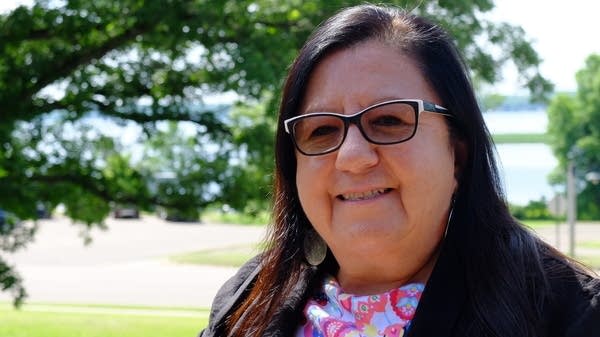Women empowering women: Native American leaders developing the next generation

The Mille Lacs Band of Ojibwe's chief executive, Melanie Benjamin, outside her office in Onamia, Minn., in June.
Dan Gunderson | MPR News
Go Deeper.
Create an account or log in to save stories.
Like this?
Thanks for liking this story! We have added it to a list of your favorite stories.


